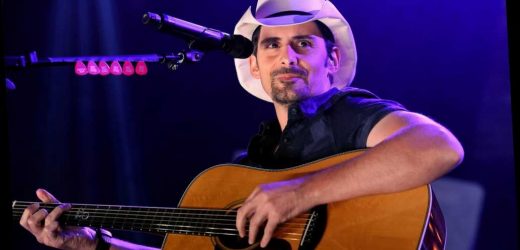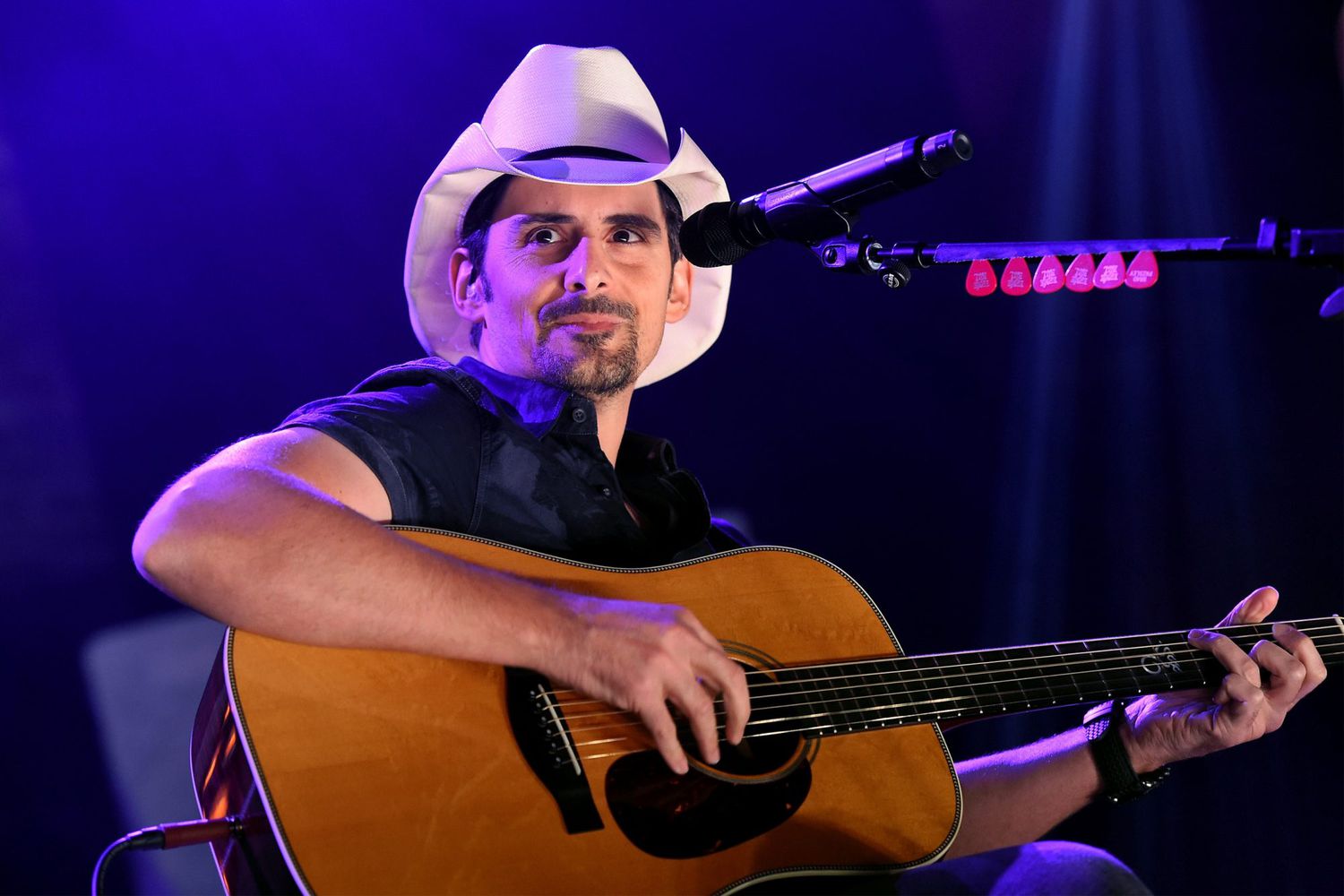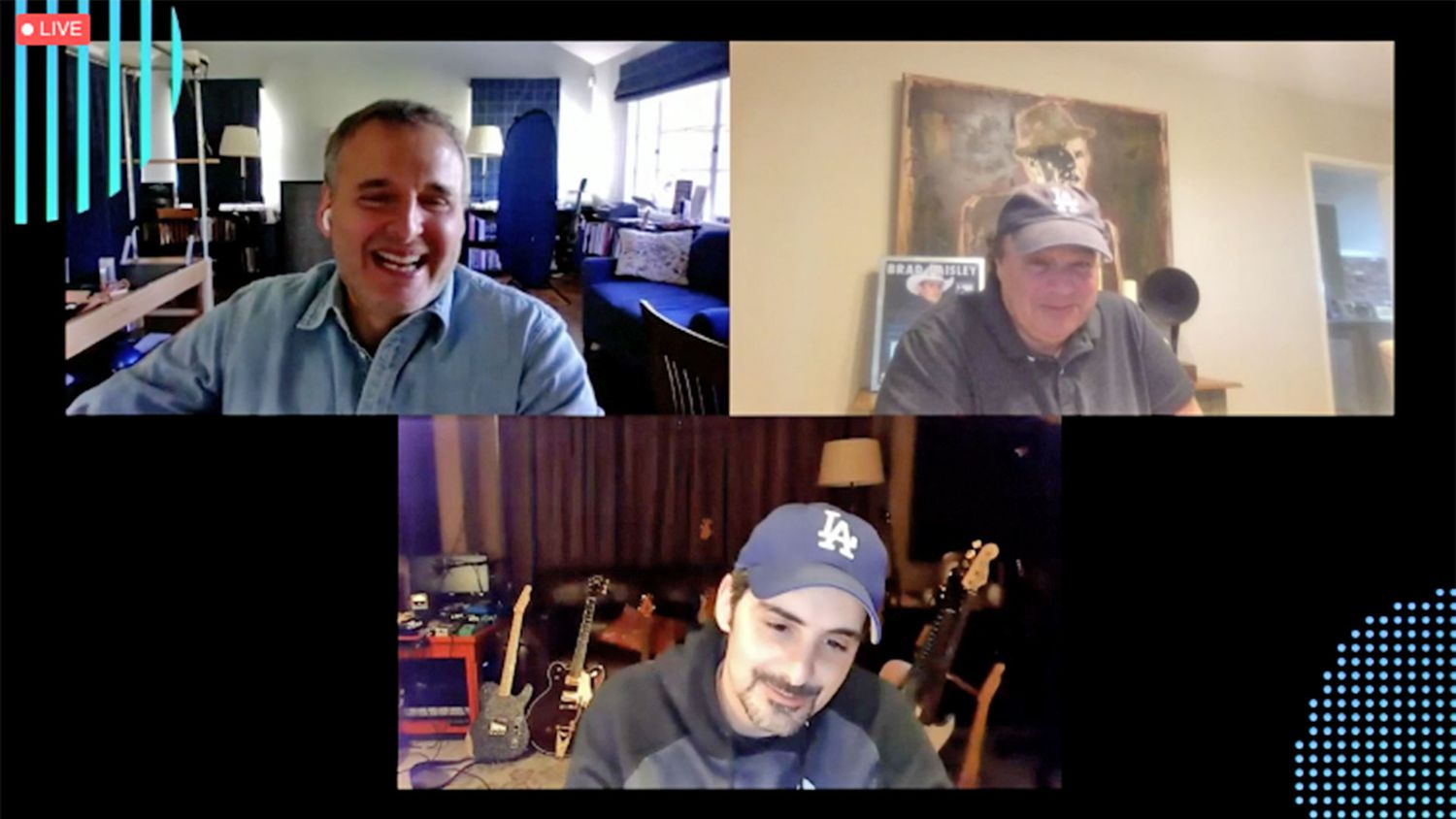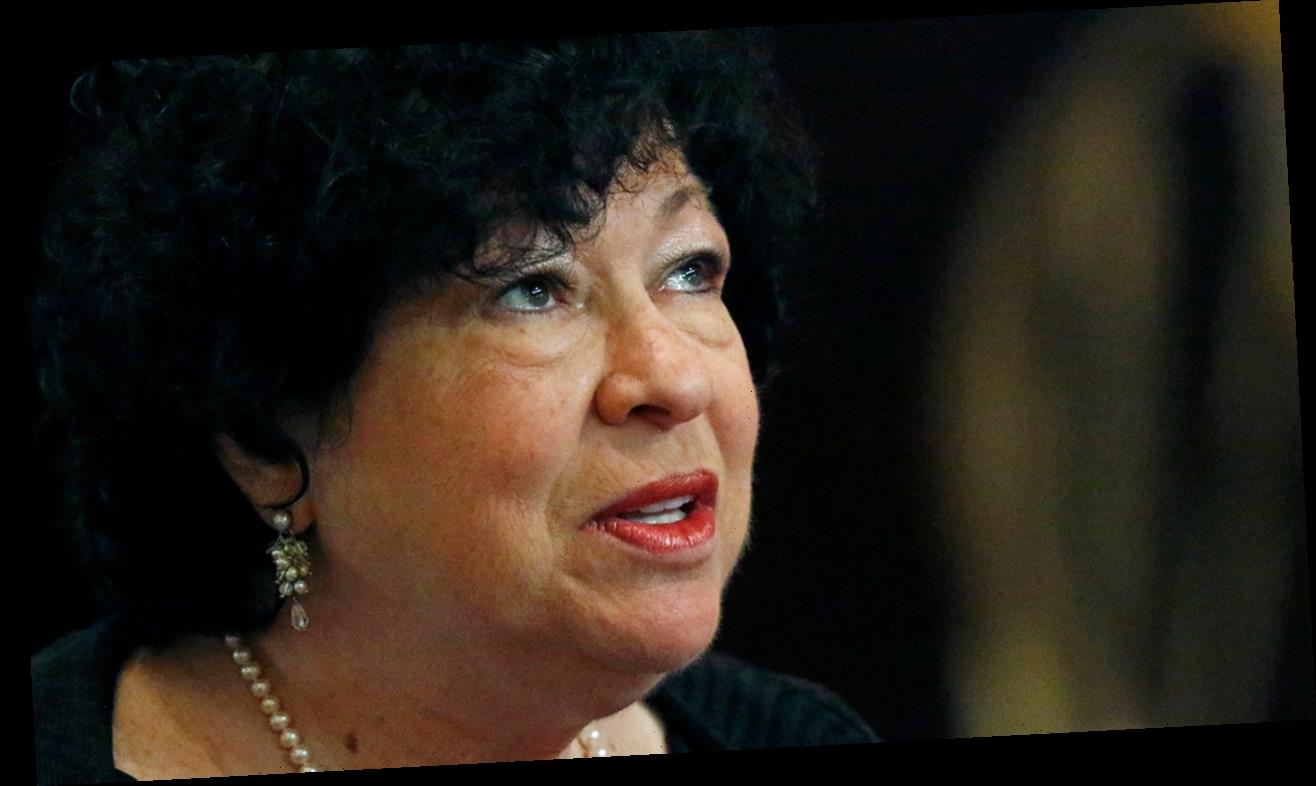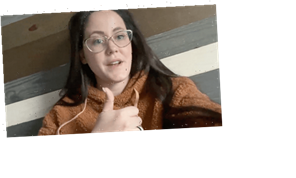Brad Paisley vividly remembers the moment last March when he first felt the full weight of what lay ahead in this pandemic era. He was at the Nashville airport, about to board a flight to Los Angeles for a TV appearance, and he realized he couldn't go.
"It felt like the beginning of what it was — a war," he recalled this week to an audience of broadcasters at the annual Country Radio Seminar. "I came home, and I walked through the door, and I broke down sobbing."
His wife, Kimberly Williams-Paisley, and their two sons, Huck, 13, and Jasper, 11, rushed to him, Paisley recalled. "And they said, 'What's wrong, Daddy?' And I said, 'I think a lot of people are going to die.'"
Almost a year later, as the U.S. death toll from COVID-19 nears a half-million, Paisley's worst fears, of course, have since come to pass. But in those first terrible moments, the 48-year-old superstar somehow was able to push through his despair and realize, as a musical entertainer, he could have a special part to play in the national crisis.
"It has never been more apparent to me the importance of what we do in music for people mentally," Paisley said. "We give them this release from life … By actually just singing about life, it gives them that release. And so I think that was why I worked hard to do that."
Indeed, perhaps no other country artist has worked harder than Paisley to bring some light to these dark times, a fact recognized by radio broadcasters when they invited him to spend an hour in a live-stream Q&A to discuss his 2020 experiences. Over the course of the past year, Paisley has connected with fans and lifted spirits through new music, drive-in concerts, Zoom happenings and livestream performances.
In fact, he was among the first country artists to seize on the power and appeal of at-home concerts via social networks, broadcasting his first virtual show a week to the day after his last live concert in March.
With Paisley-Williams as his iPad-wielding videographer, he delivered a 15-song acoustic set, mostly inspired by fan requests. Amid the merriment, the singer finally betrayed his raw emotions, stifling sobs as he tried to make his way through "In the Garden," one of his favorite gospel songs. Pals Carrie Underwood, Tim McGraw and Chris Young also dropped in for virtual duets on the show.
"It was just so much fun, I think, for fans to see us wing it," Paisley said about that initial effort. "We're so used to overthinking everything on any awards or television show that we do … I felt like it was a nightmare, and also one of the cooler things I've done in some ways, because I was sweating and my heart was beating in a way that it never does in a concert — just thinking this is going off the rails at any second."
That first show proved so popular — a staggering 3.8 million views — that Paisley picked up Bud Light as a sponsor for a livestream series. The brewery also underwrote a May 15 livestream of Paisley performing, for free, his entire arena show.
But Paisley's bountiful creativity and playfulness really took over once he recognized the power of Zoom get-togethers. That moment occurred after his fellow ad pitchman, Peyton Manning, invited him into an impromptu Zoom session — instigated by Manning's alma mater, the University of Tennessee, to see how many celebrities the Football Hall of Famer could virtually gather.
"We're all on there having a blast," Paisley recollected about that meet-up, "and I was like, we could do this with fans."
He already was fielding texts from a designated phone number for fans, and when the idea dawned on him, he happened to have just received a Zoom invitation to join a group of nurses on a virtual after-work happy hour.
"It was the greatest," Paisley said, savoring the moment he joined their party. "I was just like, blam! And then you can imagine, I was Elvis at that moment. They went crazy. I jumped in, and I'm like, 'What are y'all drinking?' They went nuts."
Paisley estimates he accepted about a hundred Zoom invitations over the summer. He shared beers with three Episcopal priests and, later, with a group of teachers weary from distance-learning chores. He surprised early-morning employees at a New York supermarket. He virtually attended the celebratory bell ringing of a cancer survivor at her final chemo treatment.
Most memorably, Paisley said, was his virtual visit with two best friends, one Black and one white, who set up lawn chairs on a neighborhood driveway in New York and posted signs, "BLACK or WHITE / Relax and have a beer!" in the days of racial unrest after George Floyd's death.
A Twitter post about their venture quickly made its way to Paisley, and soon he was Zooming with the Pittsford, New York, duo and arranging for a local Bud distributor to fill the driveway with cases of beer.
During their conversation, Paisley remembered, "they started crying when they were talking about one another and their friendship and what it means, and how they feel so just hurt and torn apart by what's happening in the world." The singer paused, letting that emotional moment sink in. "I never left the studio … doing all this stuff," he added. "That's what was crazy about it."
Video snippets from many of the Zooms eventually made their way into Paisley's hit single, "There Is No I in Beer," which has become one of the anthems of the COVID-19 era.
https://www.youtube.com/embed/b323QGBSW3U
"It was strangely emotional to me," Paisley said about the tune, which surprisingly, was written before the pandemic. "It's a fun drinking song, but I don't know why it worked so well as this emotional piece. The line of the song that's important in the chorus is that 'we're all in this together,' and it did feel that way, at least for a minute."
The weirdness of the times, however, has also been undeniable. Paisley especially bore witness to this as one of several artists who performed drive-in shows in arena parking lots that had been turned into giant checkerboards to isolate concert-goers.
"What was crazy was that when you spread out that many people, the back row was a quarter-mile away," Paisley said. "We had a big video wall and sound that could get there, but it was really bizarre. … I know they loved it, because I loved it, and I could see it on their faces, the ones I could see. But it's not what you're used to. The response was so delayed and so much more sort of diffused. You had to reprogram your mind for that."
Still, Paisley said, those experiences gave him what he believes is "a glimpse into the sort of true enthusiasm I'm going to feel" once live performances return to some semblance of normal.
Paisley is hoping that day comes by early fall, or at the latest, by year's end. "I would love to do a concert before this year is up — a real one and not a drive-in," he said. "I want us to be in a situation where 'oh my goodness, it's back.' That's the goal. And we all need it. Our bands need it. We need it mentally. We need it for music, in general, and I think if we do the right things, we can get there."
As he awaits the day, Paisley is looking back on this extraordinary year and reflecting on his role in it. "There's a lot of things that I would do differently," he said, "but at the same time, there's a lot I wouldn't trade for anything."
As information about the coronavirus pandemic rapidly changes, PEOPLE is committed to providing the most recent data in our coverage. Some of the information in this story may have changed after publication. For the latest on COVID-19, readers are encouraged to use online resources from the CDC, WHO and local public health departments. PEOPLE has partnered with GoFundMe to raise money for the COVID-19 Relief Fund, a GoFundMe.org fundraiser to support everything from frontline responders to families in need, as well as organizations helping communities. For more information or to donate, click here.
Source: Read Full Article
